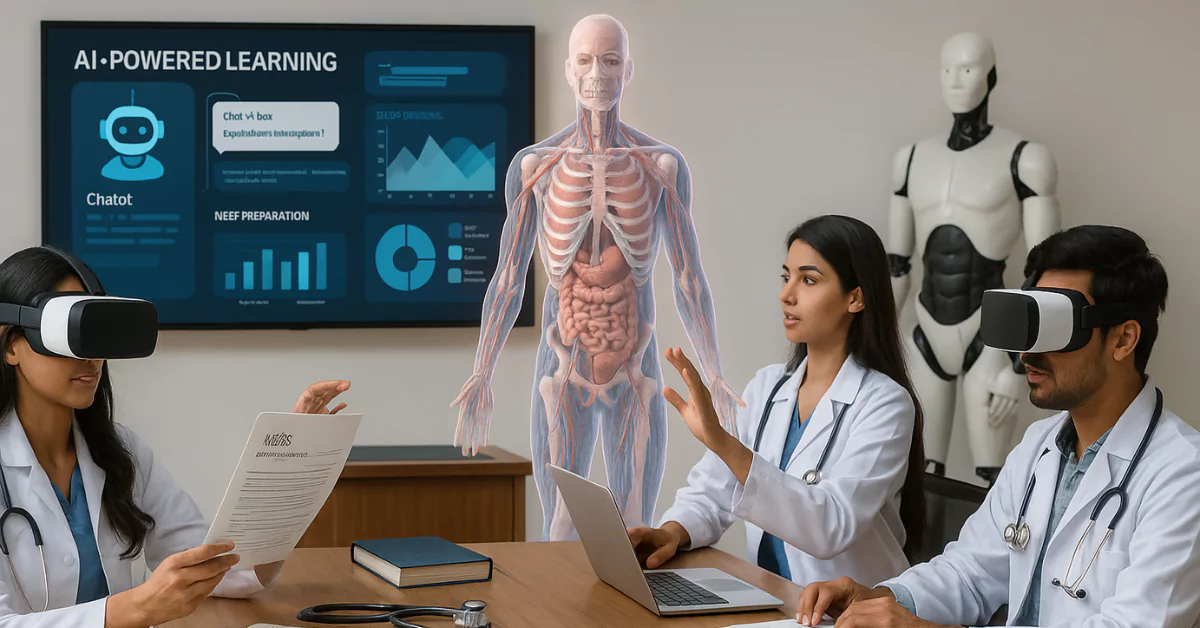News Summary
- AI and modern technology are transforming medical education in India through tools like VR dissection, AI-powered NEET prep, and robotic simulations.
- AIIMS, KMC Manipal, and JIPMER have begun adopting digital learning modules.
- Challenges like digital divide, faculty resistance, and uneven infrastructure remain.
- Policymakers must ensure inclusive, ethical, and curriculum-integrated tech adoption
AI and modern technology are changing the way medical education is imparted across India. From virtual anatomy to AI-powered NEET prep to NMC-led reforms, Indian medical institutions are slowly but steadily integrating innovation into the learning ecosystem.
However, this transformation is uneven, held back by infrastructure gaps, regulatory bottlenecks, and digital divides. This article outlines current trends, institutional case studies, key challenges, and policy recommendations for a future-ready, tech-driven Learning Platforms education system.
AI & Modern Technology in Indian Medical Education
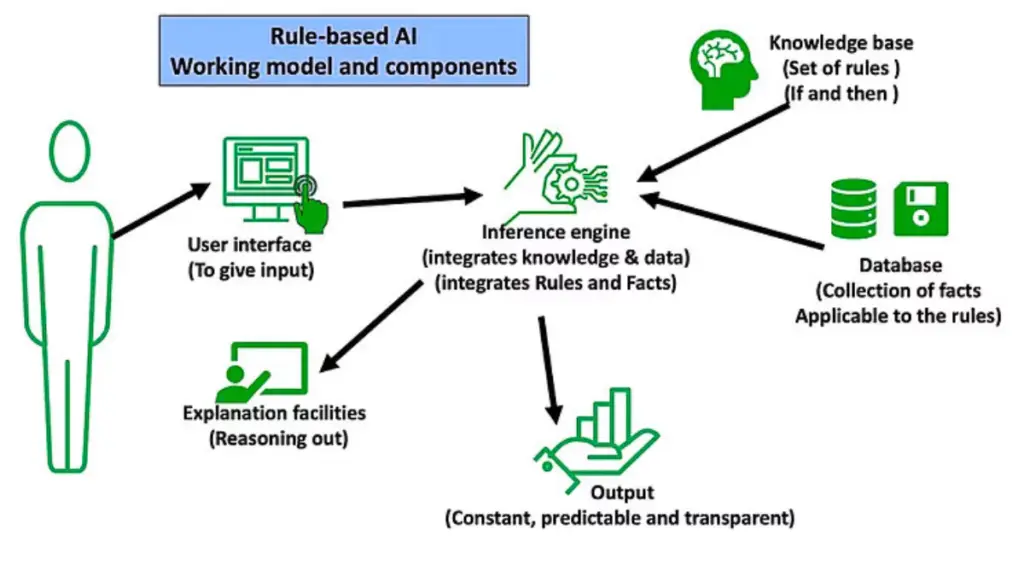
AI in Medical Education: Learning Platforms
The rise of artificial intelligence in medical coaching and learning has transformed how MBBS students, interns, and PG aspirants approach preparation for competitive exams like NEET PG, FMGE, and NExT.
Adaptive Learning Engines
- Platforms such as Marrow, Prepladder, Doctutorials, and Unacademy use machine learning algorithms to track student performance.
- These systems analyze strengths and weaknesses, then curate personalized test series, video recommendations, and revision plans.
- This ensures that a student struggling in Pharmacology, for example, receives more practice questions and targeted explanations in that subject.
AI Tutors and Doubt-Solving
- Bodhi AI, a Rajasthan-based edtech startup, has emerged as a notable player in the medical education ecosystem.
- Its AI-driven doubt-solving bots simulate the role of a human tutor by providing quick explanations, image-based answers, and concept links.
- Several private medical colleges have officially integrated Bodhi AI into their academic support systems, showing how AI is moving beyond just exam prep into mainstream MBBS education.
GPT-based Assistants in Informal Learning
Students are also turning to GPT-powered tools, such as ChatGPT and custom medical bots, for:
- Case practice simulations (e.g., working through diagnostic reasoning with virtual patients).
- Anatomy memorization through mnemonics, image labeling, and spaced repetition.
- NExT-style MCQs that test clinical application rather than rote recall.
This informal adoption reflects a bottom-up transformation, where students integrate AI into their daily study habits even before medical colleges officially endorse such tools.
Potential Impact on Medical Training
- Democratization of coaching: Students in tier-2 and tier-3 cities can access high-quality adaptive coaching without needing to migrate to metro-based institutes.
- Faculty augmentation: AI tutors handle repetitive queries, allowing faculty to focus on higher-order clinical training.
- Continuous assessment: Real-time performance dashboards provide feedback loops that traditional classroom settings lack.
However, concerns remain around over-reliance on AI, the accuracy of AI-generated content, and the lack of regulatory oversight in medical edtech.
Read Also: NMC NExT Exam 2025: Why It is Being Delayed?
Medical Imaging Using AI

- Quick Diagnosis: AI scans images faster than doctors.
- Early Disease Detection: Spots issues like cancer early.
- Reduces Errors: Acts as a second eye for radiologists.
- Saves Time & Cost: Speeds up work, useful in remote areas.
- Better Decisions: Helps doctors plan accurate treatments.
3D Anatomy & Digital Dissection Tools
- Platforms like Primal Pictures, Complete Anatomy, and Elsevier’s 3D Atlas are being introduced in:
- AIIMS Delhi, KMC Manipal, and JIPMER (pilot use).
- They help students visualize organs in 3D and replace cadaver shortage.
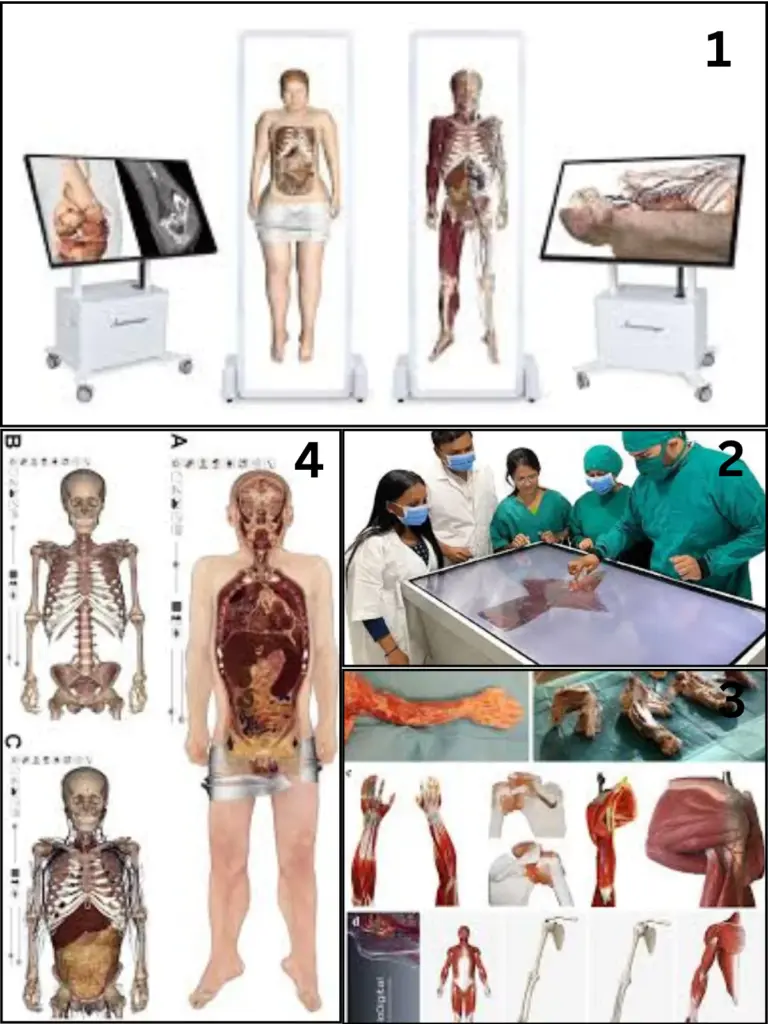
Virtual Reality (VR) and Simulation Labs
- VR-surgery modules, funded under private-public partnerships, have been rolled out in:
- Manipal Academy of Higher Education: uses AR/VR for OBGY and surgical skills training.
- Amrita School of Medicine (Kochi): VR patient simulator for CPR and trauma training.
- NMC’s Skills Lab Mandate (2023) has led to simulated ward setups in 600+ medical colleges.
Robotic Mannequins & AI Patients
- Apollo Hospitals and AIIMS Jodhpur use robotic mannequins that mimic vitals for emergency response drills.
- AI-patient avatars (with voice/emotion recognition) are being tested in telemedicine and psychiatry roleplay modules.
Cloud Computing in Healthcare
Cloud computing is transforming healthcare in India by making medical data storage, sharing, and access faster and more efficient.
- Hospitals and clinics can now store patient records, test reports, and scan images on secure cloud servers, reducing paperwork and improving coordination between doctors.
- In rural areas, cloud-based telemedicine platforms allow specialists to consult patients remotely.
- Government schemes like ABDM (Ayushman Bharat Digital Mission) are also using cloud technology to build a unified digital health ecosystem, ensuring better data management and continuity of care across states.
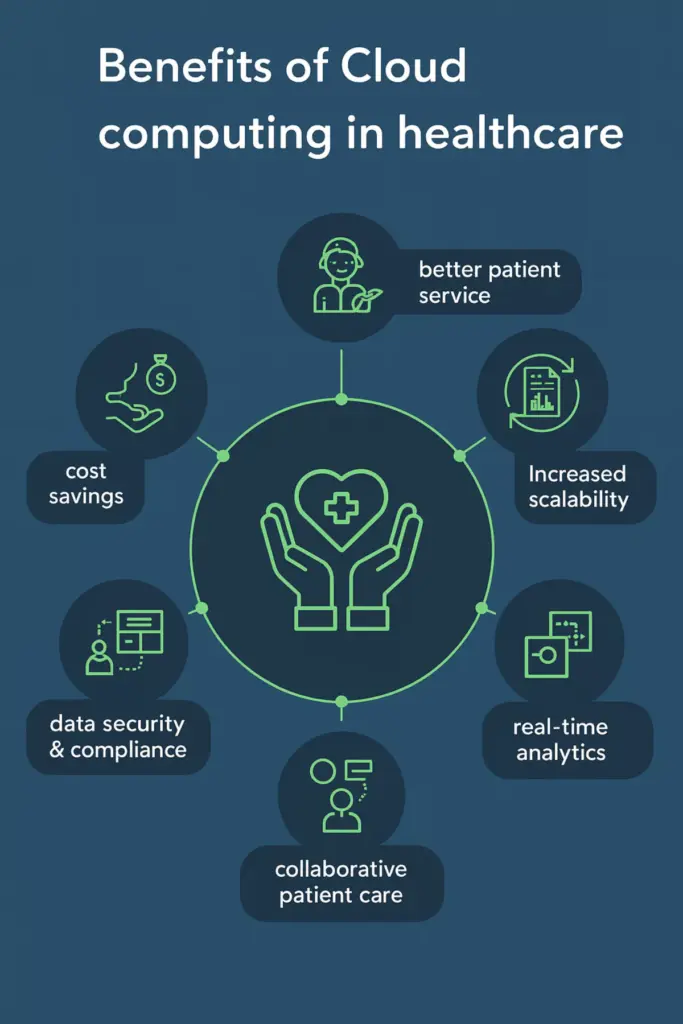
Institutional Case Studies
AIIMS Delhi
- Introduced AI-based radiology training modules in collaboration with Microsoft Research.
- Uses AI in pathology slide analysis as part of UG electives.
Kasturba Medical College, Manipal
- Integrated VR headsets for surgery planning.
- Faculty use AI analytics to monitor student performance in real-time during simulations.
JIPMER Puducherry
- Launched a pilot on using chatbot-based case simulations for community medicine.
Government & NMC Initiatives
Key Developments
- National Digital Health Mission: Introduce by Indian governments to bring digital transformation in healthcare ecosystem.
Read Also: India’s Medical Education Revolution: NMC Reforms, CBME, NEXT & More
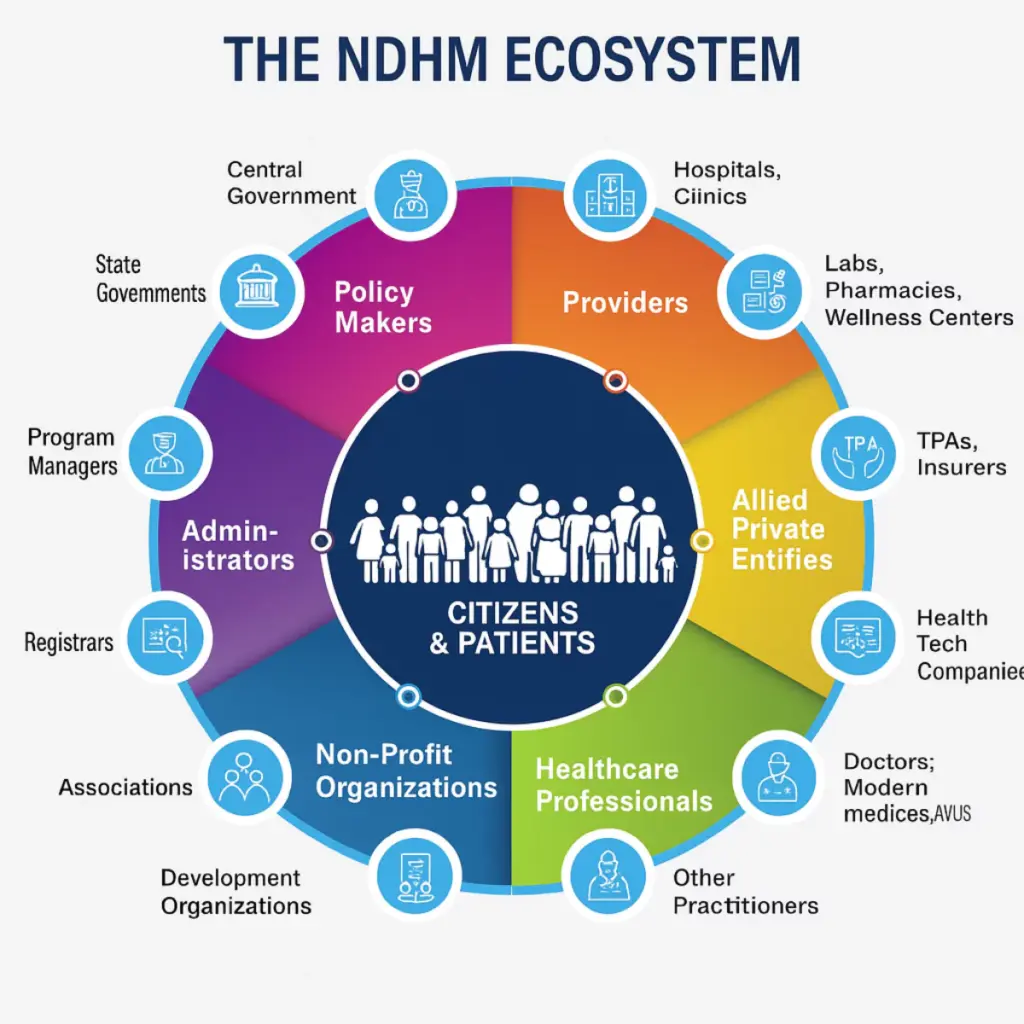
- National Medical Commission (NMC):
- Issued guidelines in 2023 to introduce AI ethics and digital medicine into MBBS curriculum.
- Mandated Skills Labs in all new medical colleges with simulation equipment.
- Digital India Health Mission: Push for cloud-based tele-education platforms in rural health training centres.
- MeitY & MoHFW Initiatives:
- Funding for low-cost VR kits for district medical colleges.
- Pilot integration of AI-driven e-learning platforms in 10 government medical colleges.
Read Also: Federalism in Medical Education & Healthcare: Tamil Nadu Report Review
Challenges Unique to India
| Challenge | Details |
| Faculty Resistance | Many senior educators lack digital fluency. Integration remains low beyond top-tier colleges. |
| Digital Divide | Students in Tier-2 and 3 cities lack VR gear, tablets, or stable internet access. |
| Private College Disparity | Many private institutions prioritize fees over quality tech adoption. |
| Slow Regulatory Updates | NMC reforms on AI curriculum remain advisory, not mandatory. No framework yet for AI-driven assessments. |
| Risk of Over-Reliance | Students may begin depending heavily on GPT-based tools, risking clinical detachment. |
Future Outlook & Opportunities
For Medical Students
- AI-based “digital clinical logbooks” will help auto-track your procedures, attendance, and progress.
- NExT exam prep will increasingly use personalized question generation and analytics.
- VR-OSCEs and AI-patient simulations could become part of internal assessments by 2028.
Read Also: AI in NEET UG 2026 Preparation: Can it Replace Coaching Institutes?
For Policymakers
- India’s healthcare sector will need 2 million digitally trained doctors by 2030.
- There is scope to integrate AI ethics, digital medicine, and tech literacy into MBBS as core competencies.
- Collaborations with Indian edtech and global AI labs (like Google Health, and Microsoft AI4Health) can accelerate capacity building.
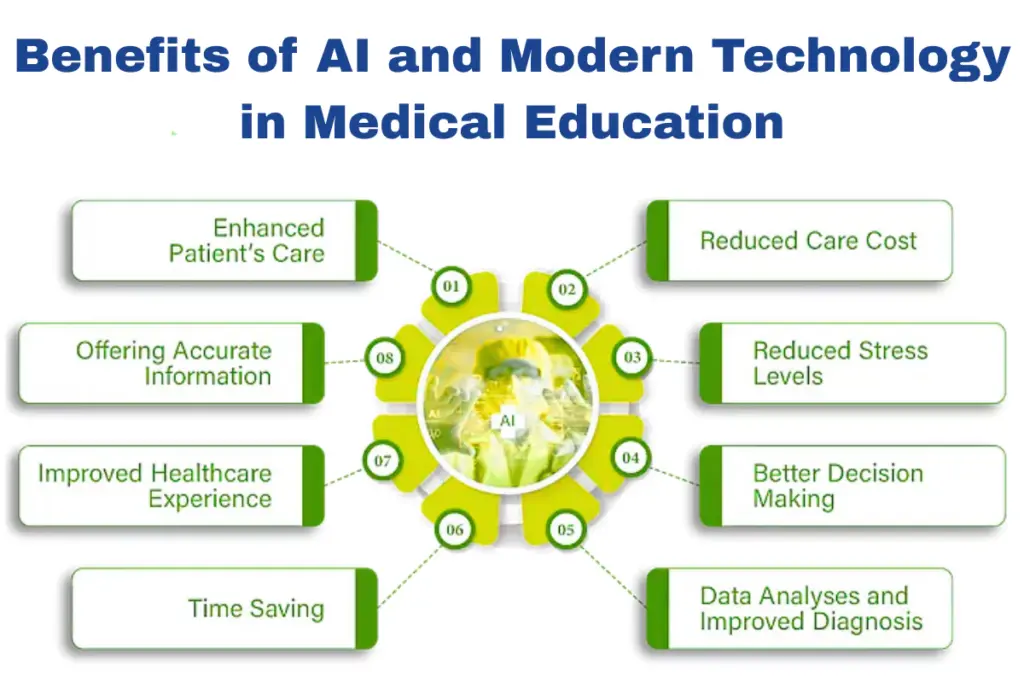
Policy Recommendations
| Stakeholder | Recommendation |
| NMC / MoHFW | Make AI and simulation modules part of mandatory curriculum (not electives). |
| State Govts | Fund VR skills labs in govt colleges through Digital Health Missions. |
| Medical Colleges | Mandate AI orientation training for faculty. Tie simulation-based learning to internal assessments. |
| Edtech Startups | Partner with institutions for ethical, India-specific AI training modules. |
| Students | Focus on tech-assisted clinical judgment, not shortcut learning. Embrace AI responsibly. |
AI and modern technologies are not the future of Indian medical education; they are the present. Yet adoption is fragmented and often confined to elite institutions. A structured push from both the public and private sectors is required to democratize access, train faculty, and align curriculum reforms with global innovations.
For medical students, the message is clear: Learn to work with AI, not against or dependently on it.

